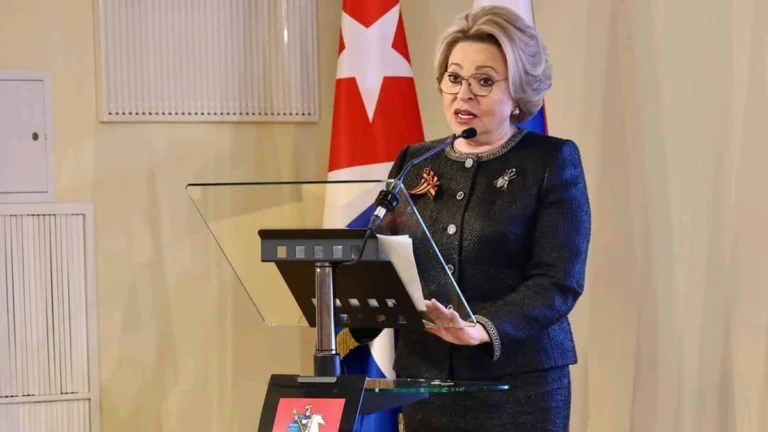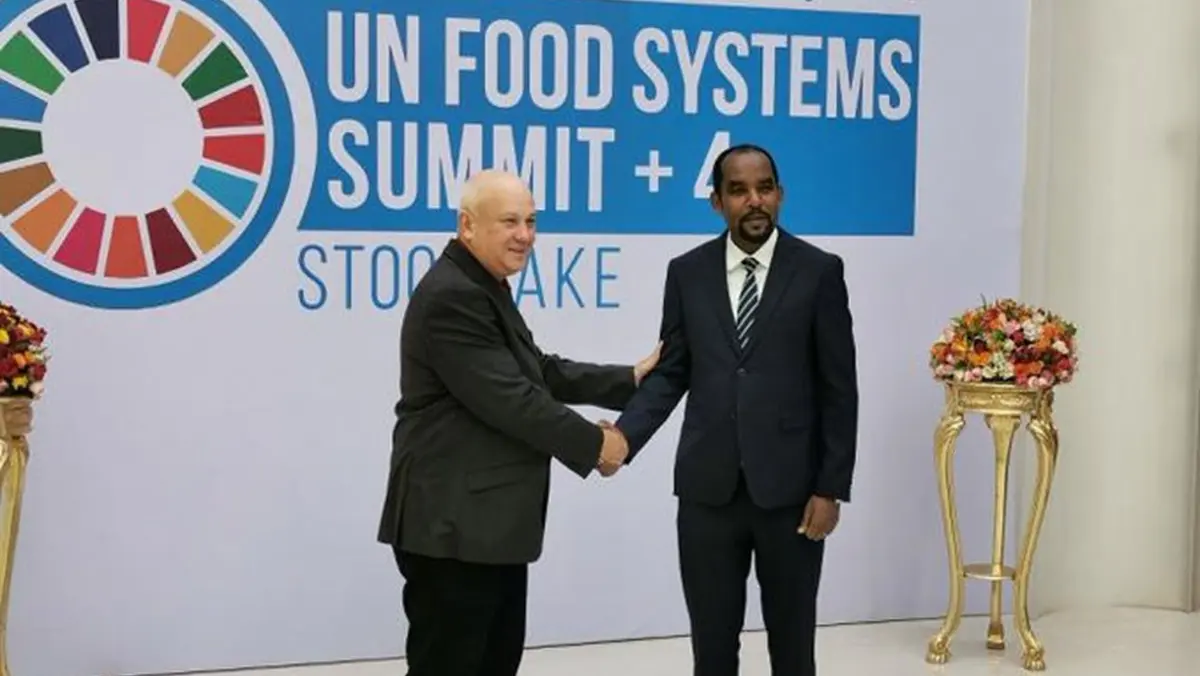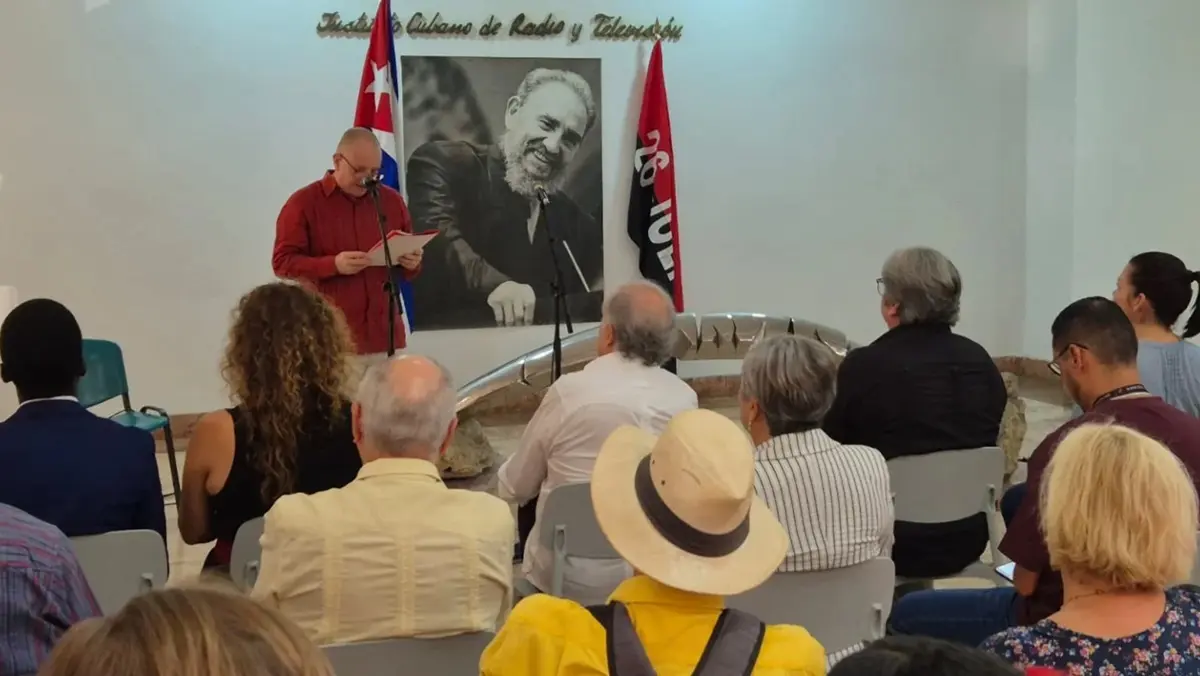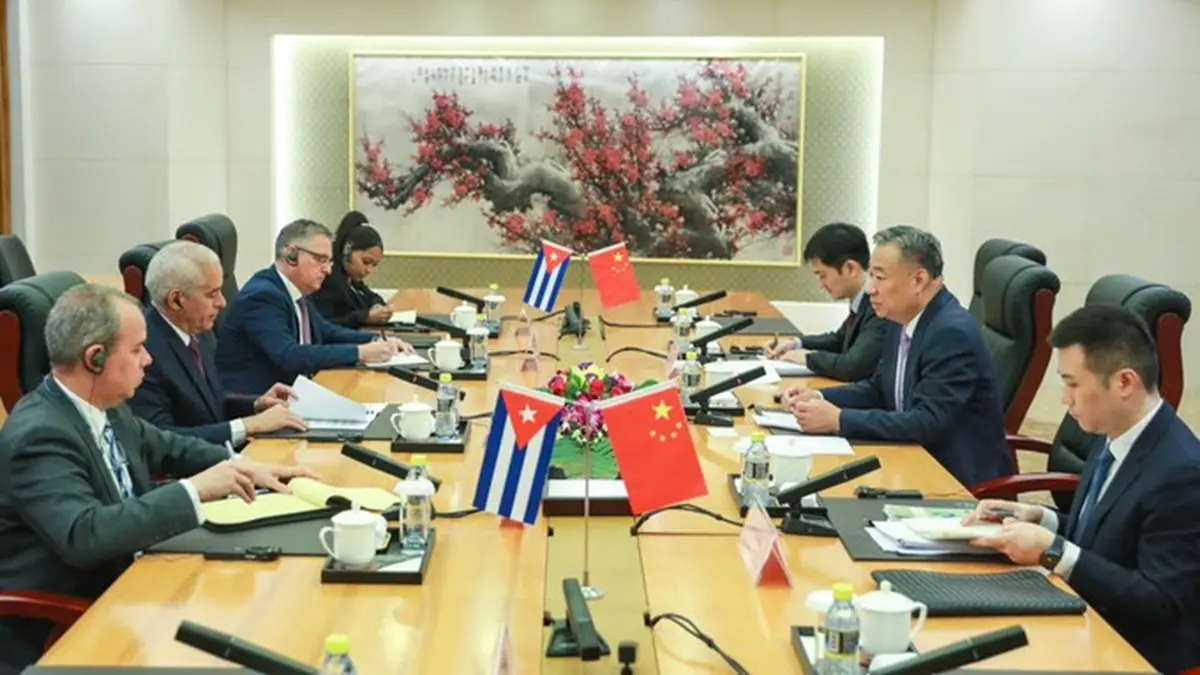BRICS and EAEU Expand Opportunities for Cuba: Matvienko

Russian legislator Valentina Matvienko. X/ @ElenaCa11173853
July 29, 2025 Hour: 12:43 pm
Cuba officially became an associate country of BRICS on Jan. 1, 2025, and has held observer status in the EAEU since 2020.
On Tuesday, Valentina Matvienko, chairwoman of the Federation Council of Russia, emphasized that Cuba’s recent designation as an associate country of BRICS and its status as an observer in the Eurasian Economic Union (EAEU) open up a range of opportunities to strengthen cooperation with the member nations of both economic blocs.
RELATED:
Cuba Condemns Unjust World Order at UN Food Systems Summit
During a meeting with Esteban Lazo, president of Cuba’s National Assembly, held on the sidelines of the Sixth World Conference of Speakers of Parliament in Geneva, Matvienko highlighted that both alliances offer new prospects for Cuba to engage more advantageously with external markets.
Cuba officially became an associate country of BRICS on Jan. 1, 2025, and has held observer status in the EAEU since 2020. The regional bloc is composed of Russia, Armenia, Belarus, Kazakhstan and Kyrgyzstan.
Matvienko noted that Cuba’s inclusion in BRICS received unanimous support from the group’s member states.
Originally formed by Brazil, Russia, India, China and South Africa, BRICS has expanded its reach by admitting new members. Egypt, the United Arab Emirates, Ethiopia and Iran joined in 2024, followed by Indonesia in early 2025.
On July 27, the Russian parliamentary delegation led by Matvienko arrived in Geneva to participate in the event organized by the Inter-Parliamentary Union and to hold bilateral meetings with representatives from other countries.
Relations within BRICS are based on mutual respect and non-interference in the internal affairs of member states. The group promotes cooperation among nations with diverse political, economic and cultural systems, aiming to foster sustainable development and global peace.
teleSUR/ JF
Source: Izvestia






